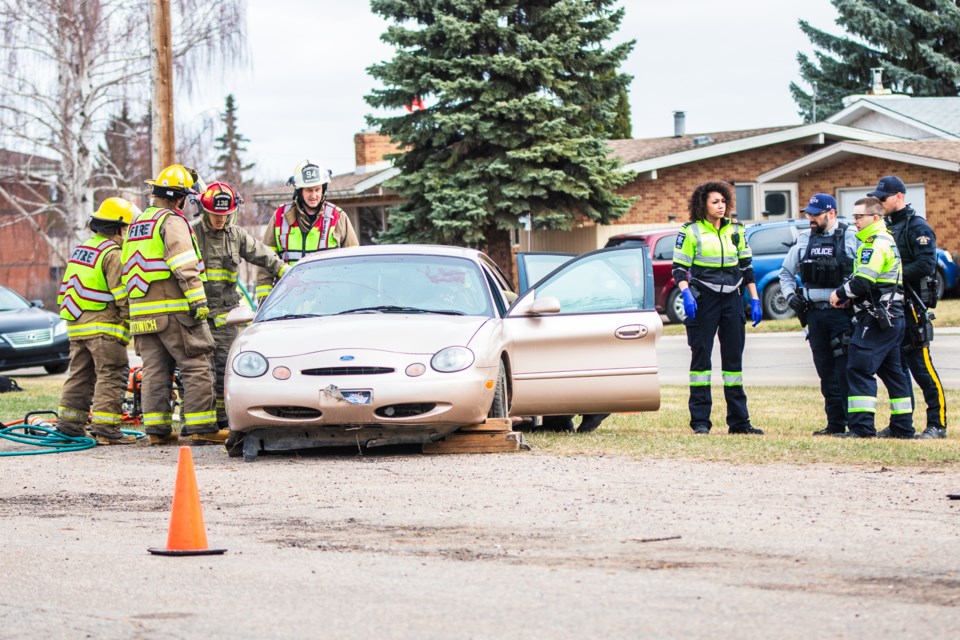ST. PAUL – On May 2, Grade 9 students from the St. Paul Education region learned about the consequences of impaired driving through a day-long event held at the St. Paul Recreation Centre.
The event was organized by the Choices Program, an initiative geared toward encouraging youth to make good choices and decisions by educating them about preventable traumas related to drugs, alcohol, sexual consent, as well as impaired and distracted driving.
Driving is a privilege, not a right
As part of the May 2 event, students were shown the first-hand consequences of driving while under the influence through a simulated crash scene involving various emergency response services.
The scenario was a single-vehicle rollover. The driver, exhibiting signs of intoxication, was promptly arrested by the RCMP for impaired driving.
But the costly mistake could not be undone. Two people were deceased, and one was in a critical condition.
A mock collision demonstration was also held recently for Grade 9 students at Two Hills School, Two Hills Mennonite School, and New Myrnam School.
Lily Belland, program manager for the Mental Health Capacity Building (MHCB) in Schools Initiative and one of the organizers of the event, says it is important to emphasize safe driving to youth early on.
In Alberta, the minimum age a person can get their learner’s license is 14, which is about the average age of a Grade 9 student. Those involved want to make sure students know the responsibilities that come along with driving.
Bradley Bespalko with Medavie Health Services West in Northeast Alberta, as well as one of the organizers, agrees with Belland.
“Driving is a privilege. It’s not a right,” says Bespalko. “They need to make good choices... to not impair anybody else,” which involves not driving while impaired, and not driving while distracted by things such as texting.
Good choices will mean “being able to go home at the end of the day, lay in your own bed... not in a hospital or in a casket,” Bespalko says.
And while the mock crash scene may not have been real, “These kind of things... happen,” says Bespalko.
The students were also given the opportunity to interact with various trauma-related groups like Mothers Against Drunk Driving (MADD Canada), Demeria Memorial Fund, Dragonfly Counselling and Support Centre (DCSC), and Native Counselling Services of Alberta.



